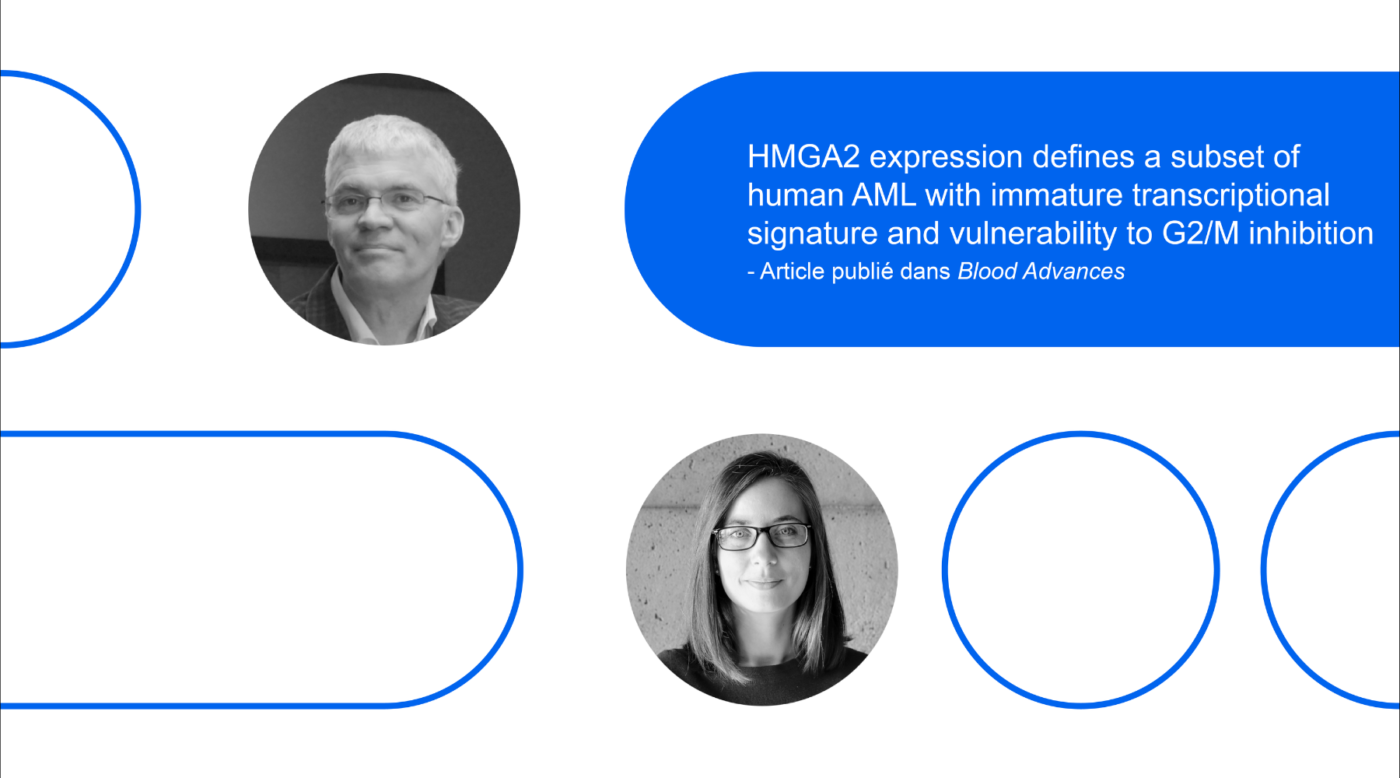News
Discovery of a new therapeutic avenue targeting the cell cycle in a subtype of acute myeloid leukemia
Published on July 21, 2022
Patients with acute myeloid leukemia (AML) have a clinical outcome based on their age, chromosomal aberrations and the presence of specific genetic mutations. Risk stratification of patients is used to guide the choice of treatment for this type of cancer. Although this categorization is essential, it is still insufficient to refine and choose the optimal treatment in the clinic.
The team of Guy Sauvageau, director of the Molecular Genetics of Stem Cells research unit, recently discovered that overactivation of the HMGA2 gene (HMGA2+) in AML is linked to a poor prognosis in the clinic. The research group therefore investigated the causes of overexpression of this biomarker in a leukemic context and identified potential new therapeutic targets.
The project, led by research officer Céline Moison, was published in the journal Blood Advances. The work was carried out in collaboration with the teams of Guy Sauvageau and Anne Marinier at IRIC, Josée Hébert at Hôpital Maisonneuve-Rosemont and Vincent-Philippe Lavallée at CHU Sainte-Justine.
G2/M cell cycle checkpoint inhibitors are effective against HMGA2+ leukemic cells
Using single cell approaches, the research group discovered that the HMGA2 gene is expressed in hematopoietic (non-leukemic) stem cells and essential for their viability. This expression profile is abnormally found in leukemic cells: its association with a poor prognosis makes it an interesting biomarker.
Analysis of the global expression profile in HMGA2+ AMLs revealed the overactivation of certain genes involved in the G2/M checkpoint of the cell cycle, which controls cell division. Inactivation of these genes via a CRISPR-Cas9 screening approach in HMGA2+ AMLs is deleterious to leukemic cells. This result was confirmed with a pharmacological approach and the use of small molecule inhibitors. The study demonstrates that the G2/M transition in the cell cycle could be a promising therapeutic target in HMGA2+ AML.
Study cited
Moison C, Spinella JF, Chagraoui J, Lavallee VP, Lehnertz B, Thiollier C, Boivin I, Mayotte N, MacRae T, Marinier A, Hébert J, Sauvageau G. HMGA2 expression defines a subset of AML with immature transcriptional signature and vulnerability to G2/M inhibition. Blood Adv. 2022 Jul 7. PMID: 35797243.
